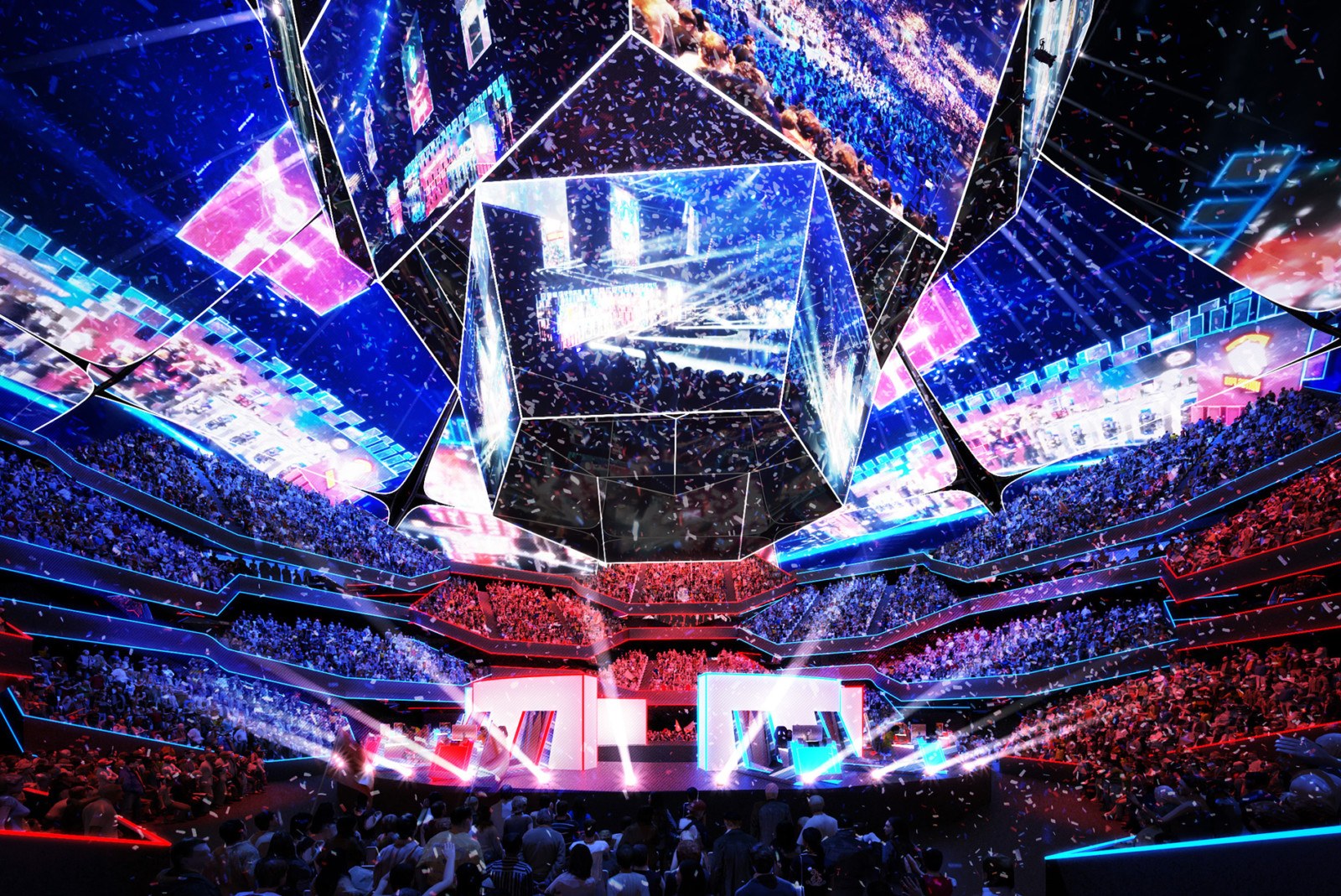As GMR’s chief brand officer leading the experiential marketing agency’s esports and gaming initiatives, Dave Rosenberg has a front row seat to the evolution of esports marketing.
With clients like Comcast, he helps recognizable brands enter or grow their presence in the esports space and executes strategic gaming sponsorships across the world.
HOK’s Rashed Singaby interviews Rosenberg on the ins and outs of the emerging esports industry, marketing and sponsorship challenges and the impact of GMR’s work on venue design.

Rashed Singaby (RS): How did you become interested in esports?
David Rosenberg (DR): Our entry into the esports space was a natural extension of our passion and deep involvement with the video game industry. As esports has grown in popularity and influence over the past five years, so has the importance of reaching this important consumer segment. It has been exciting to see our work evolve to include new and creative partnerships within the broader videogame industry, including media and social influencers.
RS: What are some challenges you see around marketing these experiences?
DR: The esports landscape is still a bit of the wild west. There are many players, each with varying knowledge of traditional corporate marketing practices. This can make it more challenging to design and implement programs that directly reflect the client’s business and marketing goals and long-term objectives.
Gamers and esports fans can be incredibly vocal with their opinions. Esports fans want to be heard. We need to design programs that clearly and creatively illustrate what a brand is communicating while staying authentic and genuine. If not, backlash can be swift since these consumers are connected to their devices 24-7.
RS: How do you see venue design influencing the experiences you create?
DR: Esports tournaments and the online fan experiences have come a long way. The high quality of the streaming content can often compete with traditional broadcasts. The on-site experience at esports events is underdeveloped and represents a significant opportunity for brands. Venues designed to provide partners with integrated, immersive experiences, both online and on-site, will be key to the continued evolution of esports.
RS: In addition to more purpose-built venues, what can we expect to see over the next five to 10 years?
DR: Esports will inevitably go through significant changes as they gain more influence within the larger entertainment industry.
This event type will become more accessible to fans who previously haven’t been familiar with esports, substantially driven by more traditional brands, mobile gaming, and mainstream sports and entertainment properties entering the space.
The nature and quality of programming and overall fan experience will evolve to meet the demands and expectations of these new corporate players along with this engaged, growing and global fan base.
Related:
HOK/SAP report:“Developing the Esports Arenas of the Future”
Rashed Singaby on “Envisioning Esports Venues.”
